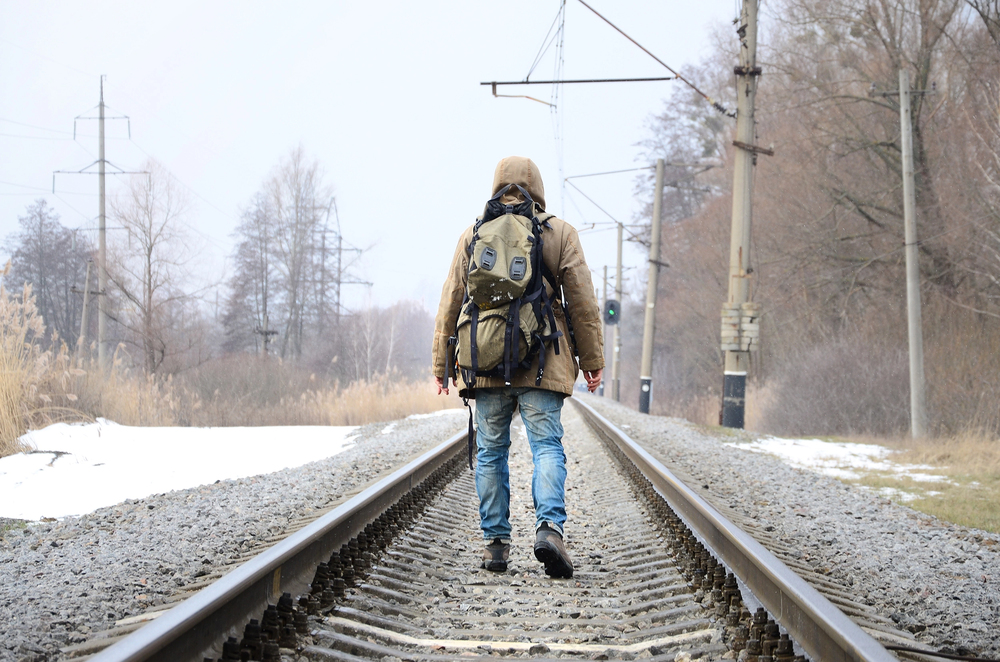Relying solely on hitchhiking for travel may seem like a relic of the past. Still, this unique form of transportation continues to captivate adventurous souls seeking authentic experiences on the road. The modern hitchhiker faces a landscape vastly different from the golden age of thumb travel in the 1960s and 1970s, yet the fundamental human connections formed during these journeys remain remarkably unchanged.
Here is a list of 20 eye-opening lessons learned from depending entirely on hitchhiking for a cross-country adventure, revealing both the challenges and unexpected joys of this distinctive mode of travel.
Time Becomes Fluid

Traditional travel schedules simply don’t apply when hitchhiking is your only method of transportation. You might spend three hours waiting for a ride in one location, then suddenly cover 300 miles in a single stretch with a long-haul trucker.
This unpredictability teaches you to abandon rigid itineraries and embrace the present moment, measuring progress in experiences rather than miles.
Generosity Transcends Demographics

The kindness of strangers defies all stereotypes and preconceptions—the people who stop range from conservative ranchers to liberal college students and wealthy executives to working-class laborers.
A soft-spoken grandmother might offer a 100-mile ride while a tough-looking motorcyclist passes by, challenging every assumption about who can be trusted to help a traveler in need.
Like Travel Pug’s content? Follow us on MSN.
Invisibility in Plain Sight

Standing on the roadside with your thumb out creates a strange social phenomenon: You become simultaneously hyper-visible and completely invisible. Hundreds of drivers will look directly at you without making eye contact, pretending not to see you at all.
This curious social dynamic reveals how people compartmentalize uncomfortable situations they don’t want to address.
Weather Becomes Critical

A drizzle that would barely interrupt a normal day becomes a major obstacle when hitchhiking. Drivers are much less likely to stop in poor weather conditions, and standing exposed to the elements quickly becomes unbearable.
You develop an almost meteorological sixth sense, planning movement around weather patterns and learning to identify natural shelters anywhere you go.
Location Strategy Matters

The difference between a good and bad hitchhiking spot can mean hours of waiting time. Gas stations near highway on-ramps prove infinitely more productive than standing directly on the interstate.
You learn to identify ideal positions where drivers can safely pull over, have already reduced their speed, and can clearly see you with adequate reaction time.
Like Travel Pug’s content? Follow us on MSN.
Appearance Affects Everything

Personal presentation becomes a strategic consideration when relying solely on hitchhiking. Clean clothes, a friendly demeanor, and a well-made sign dramatically increase your chances of securing rides.
Travelers who look unkempt or threatening often wait much longer, regardless of their actual character or intentions.
Backpack Weight Becomes Torture

Every unnecessary ounce in your pack transforms into a burden when walking between hitchhiking spots. What seemed reasonable at home becomes agonizing after carrying it for miles between rides.
Long-distance hitchhikers often mail possessions home during their journeys, eventually paring down to absolute essentials.
Hunger Scheduling Shifts

Regular meal timing becomes impossible when you’re at the mercy of ride availability. You learn to eat opportunistically whenever possible, carrying dense, non-perishable foods and developing the ability to go long stretches without eating.
Many experienced hitchhikers adopt a grazing approach, eating small amounts throughout the day rather than distinct meals.
Like Travel Pug’s content? Follow us on MSN.
Sleep Anywhere Skill Develops

The ability to rest in less-than-ideal circumstances becomes essential when hitchhiking long distances. You master the art of catching sleep in strange places—the backs of pickup trucks, 24-hour diners, or waiting areas at truck stops.
Your body adapts to snatching rest whenever safe opportunities present themselves rather than conventional night-time sleeping.
Conversation Skills Strengthen

Spending hours in cars with strangers sharpens your social abilities remarkably. You develop an intuitive sense for reading people, knowing when to engage and when to respect silence.
Most notably, you learn to find common ground with almost anyone, regardless of how different their life experiences may be from your own.
Personal Stories Become Currency

The exchange of personal narratives forms the backbone of the hitchhiking experience. Your own stories become a form of payment for the ride, while drivers often share surprisingly intimate details of their lives with a stranger they’ll never see again.
This temporary relationship creates a unique space for authentic human connection without the complications of ongoing friendship.
Like Travel Pug’s content? Follow us on MSN.
Patience Stretches Infinitely

No other travel method tests patience quite like hitchhiking. Standing in the same spot for hours, watching car after car pass by, forces you to develop mental fortitude. This extreme patience practice extends beyond the journey itself, fundamentally changing how you approach waiting in other areas of life.
Communication Gets Creative

When sharing vehicles with people who speak different languages, you discover how much can be communicated without words. You develop improvisational sign language, using facial expressions, maps, and pantomime to bridge linguistic divides.
These encounters demonstrate how humans can connect meaningfully despite significant communication barriers.
Trust Calculation Changes

Relying on hitchhiking forces you to recalibrate your risk assessment skills. You make split-second decisions about entering vehicles based on subtle cues and intuition.
Most surprisingly, you discover that your instincts about trustworthiness are generally reliable when you learn to listen to them carefully.
Like Travel Pug’s content? Follow us on MSN.
Destinations Evolve Constantly

The fluid nature of hitchhiking often leads to unexpected destination changes. An offhand comment from a driver about an interesting nearby location frequently results in spontaneous detours.
You might begin the day heading west and end up traveling north based on ride availability and newfound opportunities.
Walking Appreciation Grows

Between rides, you often walk considerable distances to reach better hitchhiking positions. These walking periods become meaningful components of the journey rather than mere transitions.
You notice details about landscapes that would blur past in faster travel, developing a deeper connection to the geography you traverse.
Humanity Faith Strengthens

Contrary to popular fear narratives, extended hitchhiking experiences typically increase faith in human goodness. The accumulation of positive encounters with strangers who go out of their way to help without expectation of return builds a profound appreciation for everyday kindness.
This perspective shift often persists long after the journey ends.
Like Travel Pug’s content? Follow us on MSN.
Problem-Solving Becomes Instinctive

The constant challenges of hitchhiking transform you into an adaptable problem-solver. From finding safe sleeping locations to navigating unfamiliar transit systems when rides fall through, you face new puzzles daily.
This continuous problem-solving exercise builds confidence in your ability to handle unpredictable situations with limited resources.
Social Boundaries Clarify

Close quarters with diverse strangers help define your boundaries with remarkable clarity. You learn exactly how much social interaction energizes versus exhausts you, developing techniques to create psychological space even in physically confined situations.
This self-knowledge proves valuable in all future social contexts.
Self-Reliance Deepens

Perhaps most significantly, hitchhiking cultivates profound self-reliance. When your travel depends entirely on factors outside your control, you paradoxically develop greater internal resources. The knowledge that you can successfully navigate whatever challenges arise with minimal resources becomes a cornerstone of identity.
Like Travel Pug’s content? Follow us on MSN.
The Road’s Lasting Impact

The lessons from extended hitchhiking transcend the journey itself, permanently altering how you navigate the world. The heightened awareness of human interdependence alongside strengthened self-reliance creates a unique perspective. Former hitchhikers often report seeing opportunities for connection and assistance where others notice only strangers, maintaining this expansive worldview long after they’ve hung up their thumbs.
These experiences reveal how removing the barrier of conventional transportation opens pathways to human connection often missed in modern travel. While certainly not without risks, the deliberate vulnerability of hitchhiking creates spaces for authentic interaction that are increasingly rare in our security-conscious world.
More from Travel Pug

- 20 Destinations That Were Once Thriving but Are Now Quietly Disappearing
- 15 Hidden Spots in Disney World’s Magic Kingdom Most Visitors Miss
- 20 Once-Popular Beach Towns That Are Now Ghostly Empty
- 20 Beautiful US Lakefront Towns Where You Can Live for Under $2000 a Month
- 20 Caribbean Islands That Are Safer Than People Think
Like Travel Pug’s content? Follow us on MSN.
